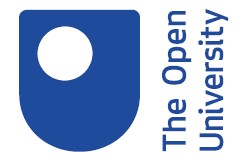In an era where climate change is a global concern, the race towards sustainable energy systems has never been more crucial.
The University of Oxford has established the Mini – Energy Systems Accelerator (TESA) – a multi-disciplinary hub that is the first of its kind in the UK. This innovative space serves as a collaborative platform where organisations can come together to drive innovation in zero carbon energy systems.
The inception of Mini TESA was initiated as a co-working space for up to 100 people, set up by the University of Oxford. However, its ambitions extend far beyond its ‘mini’ status. The primary goal is to significantly scale up its operations and influence, playing a pivotal role in ensuring that the UK achieves its ambitious zero-carbon targets.
There is arguably no challenge greater for the UK and the global community today than the transition to a sustainable energy system. Mini TESA brings together key stakeholders, including the Low Carbon Hub and SSE Networks, to collaboratively develop solutions and provide global leadership in zero-carbon energy systems. Beyond this, it underpins the future development of the Osney Mead industrial estate, a testament to its commitment to holistic sustainability.
To bring this ambitious project to fruition, Mini TESA secured £600,000 in government funding via the Getting Building Fund. This financial support allowed for the conversion of Holywell House into a proof-of-concept Mini TESA, which opened its doors in June 2022. Just nine months later, by March 2023, the project had already created 58 jobs, well on its way to achieving its target of 102 jobs by March 2025. These jobs span various domains, including positions in the University’s new Zero Institute.
Oxfordshire is a hotbed for cutting-edge energy innovation. It hosts two of the three UK Government’s major energy systems demonstrator projects, funded under the Industrial Strategy’s “Prospering from the Energy Revolution.” In less than six months, Mini TESA has showcased the tremendous value of co-locating the University with key stakeholders. This collaboration is now attracting more companies eager to hot-desk within its innovative confines, further accelerating the pace of innovation.









